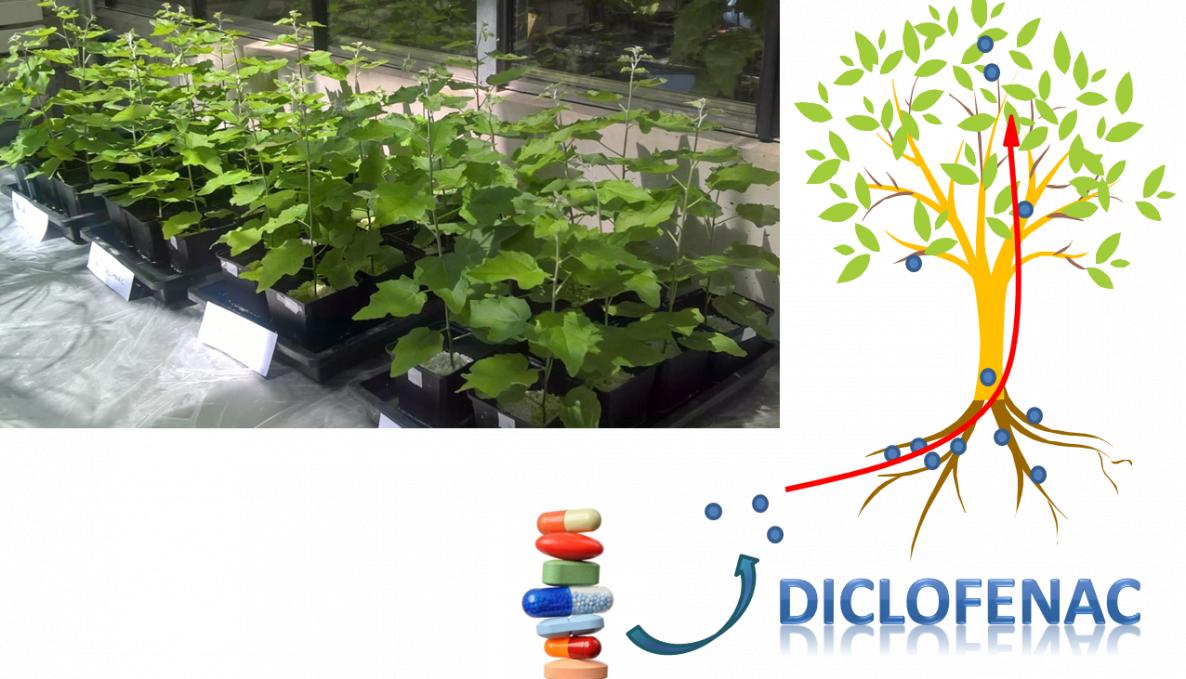Poplar trees to eliminate pharmaceutical pollution in urban wastewater: a study by Sant’Anna School Institute of Life Sciences and Helmholtz research center reports poplars roots absorb pollutants

Pharmaceutical pollution has been recognised as a global threat and attracted increasing scientific concern. A new study conducted by researchers of Sant’Anna School Institute of Life sciences in collaboration with the Helmholtz Zentrum Munich, and published in the journal “Science of The Total Environment”, investigated the poplars potential in pollution removal.
Environmental biotechnology, such as bioremediation and phytoremediation, is using plants to eliminate toxic contaminants. This poplar plant uptake technology for non-steroidal anti-inflammatory drugs demonstrated the ability of Populus alba Villafranca clone to actively participate in the removal of Diclofenac from water (organic and inorganic xenobiotics including heavy-metals in contaminated soil).
“This study revealed that poplars roots naturally absorb pollutants and are able to respond to xenobiotic toxicity – said Luca Sebastiani, director of the Institute of Life Sciences. Xenobiotics, or any substance that is “foreign to life” can be natural compounds taken up by other organisms but man produces most of xenobiotic contamination. Poplars phytoremediation is an eco-friendly, biological approach and has the advantage to increase our knowledge about the impacts of xenobiotics on plants system and human health”.
The paper is coauthored by Erika Carla Pierattini, Alessandra Francini, Luca Sebastiani , Christian Huber and Peter Schröder from Research Unit Comparative Microbiome Analysis, Helmholtz ZentrumMünchen - Deutsches Forschungszentrumfür Gesundheit und Umwelt (GmbH), Ingolstädter Landstr Germany.
Additional information can be found here: Poplar and diclofenac pollution: A focus on physiology, oxidative stress and uptake in plant organs. Science of the Total Environment 636 (2018) 944–952. Erika Carla Pierattini, Alessandra Francini, Christian Huber, Luca Sebastiani, Peter Schröder.



